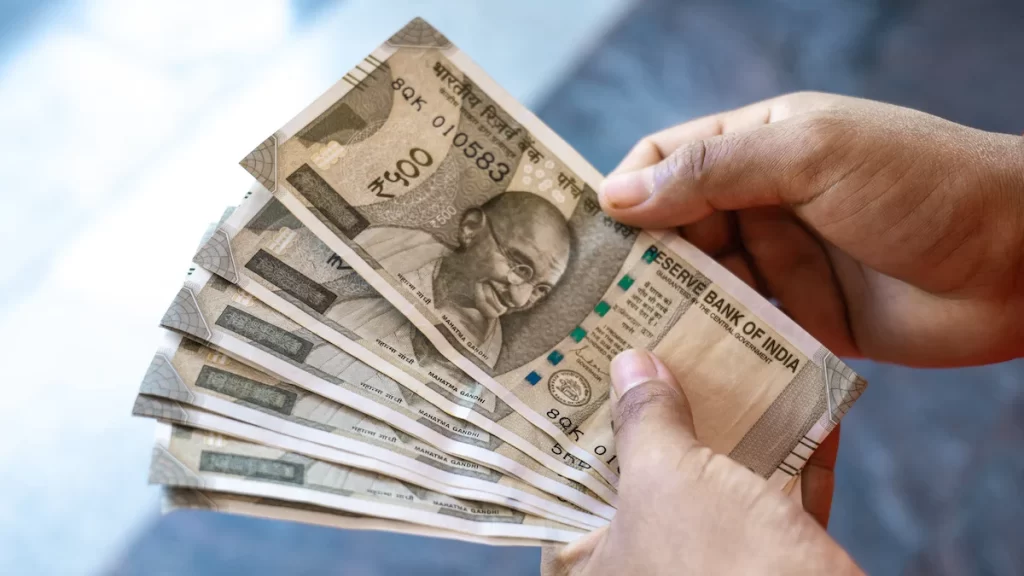The RBI has liberalised FEMA regulations to boost the Indian Rupee (INR) for cross-border transactions, facilitating INR accounts for non-residents, enabling INR transactions between non-residents, supporting foreign investment, and offering flexibility for exporters.

The Reserve Bank of India (RBI) on Thursday announced a slew of measures to promote cross-border transactions in the Indian Rupee (INR) and local currencies of trading partner countries.
The central bank said the steps follow a comprehensive review of regulations under the Foreign Exchange Management Act (FEMA), 1999, undertaken in consultation with the central government.
The liberalised FEMA regulations allow overseas branches of authorised dealer banks to open INR accounts for persons residing outside India. These accounts can be used for settling permissible current and capital account transactions with Indian residents.
Also, non-residents can now settle bona fide transactions with other non-residents using balances in their repatriable INR accounts, such as Special Non-resident Rupee Accounts (SNRR) and Special Rupee Vostro Accounts (SRVA).
The balances in these accounts can also be used for making investments, including foreign direct investment (FDI) in non-debt instruments.
Indian exporters have been provided greater flexibility with the ability to open accounts in foreign currencies overseas. These accounts can be used to settle trade transactions, receive export proceeds, and make payments for imports, the RBI said.
The RBI had earlier introduced SRVA in July 2022 to encourage the use of INR for international trade. Since then, several foreign banks have opened such accounts with Indian banks.
The Reserve Bank has already signed a Memorandum of Understanding (MoU) with the central banks of the United Arab Emirates, Indonesia, and the Maldives to encourage cross-border transactions in local currencies.
These reforms are designed to strengthen India’s trade and investment framework, reduce reliance on dominant foreign currencies like the US Dollar, and bolster the INR’s global standing.
Highlights of the New FEMA Reforms
1. INR Accounts for Overseas Residents:
Overseas branches of Authorised Dealer (AD) banks can now open INR accounts for non-residents. These accounts will facilitate current and capital account transactions with Indian residents, streamlining cross-border settlements.
2. Transactions Between Non-Residents in INR:
Non-residents can now use balances in their repatriable INR accounts, including Special Non-resident Rupee Accounts (SNRAs) and SRVAs, to conduct transactions with other non-residents. This opens new avenues for INR-based trade and settlements outside India.
3. Support for Foreign Investment:
Balances in repatriable INR accounts can now be used for foreign investments, including Foreign Direct Investment (FDI) in non-debt instruments, providing a new channel for Rupee-based investments in India.
4. Flexibility for Exporters:
Indian exporters are now permitted to open foreign currency accounts overseas to receive export proceeds and utilise these funds for paying for imports. This move enhances operational flexibility and reduces currency conversion costs.
The latest announcement follows a series of measures initiated by the RBI in July 2022, including the introduction of Special Rupee Vostro Accounts (SRVAs), which allowed foreign banks to establish Rupee accounts with Indian banks.
This was further complemented by Memorandums of Understanding (MoUs) with central banks of the UAE, Indonesia, and the Maldives, enabling greater bilateral trade in local currencies.
These measures are a step towards internationalising the Indian Rupee and promoting it as a viable currency for global trade.
Practice area's of B K Goyal & Co LLP
Income Tax Return Filing | Income Tax Appeal | Income Tax Notice | GST Registration | GST Return Filing | FSSAI Registration | Company Registration | Company Audit | Company Annual Compliance | Income Tax Audit | Nidhi Company Registration| LLP Registration | Accounting in India | NGO Registration | NGO Audit | ESG | BRSR | Private Security Agency | Udyam Registration | Trademark Registration | Copyright Registration | Patent Registration | Import Export Code | Forensic Accounting and Fraud Detection | Section 8 Company | Foreign Company | 80G and 12A Certificate | FCRA Registration |DGGI Cases | Scrutiny Cases | Income Escapement Cases | Search & Seizure | CIT Appeal | ITAT Appeal | Auditors | Internal Audit | Financial Audit | Process Audit | IEC Code | CA Certification | Income Tax Demand Notice | Psara License | FCRA Online
Company Registration Services in major cities of India
Company Registration in Jaipur | Company Registration in Delhi | Company Registration in Pune | Company Registration in Hyderabad | Company Registration in Bangalore | Company Registration in Chennai | Company Registration in Kolkata | Company Registration in Mumbai | Company Registration in India | Company Registration in Gurgaon | Company Registration in Noida | Company Registration in lucknow
Most read resources
tnreginet |rajssp | jharsewa | picme | pmkisan | webland | bonafide certificate | rent agreement format | tax audit applicability | 7/12 online maharasthra | kerala psc registration | antyodaya saral portal | appointment letter format | GST Search Taxpayer | caro 2020 | Challan 280 | itr intimation password | internal audit applicability | preliminiary expenses | mAadhar | e shram card | aaple sarkar portal | epf activation | scrap business | brsr | depreciation on computer | west bengal land registration | traces portal | Directorate general of GST Intelligence | form 16 | rtps | patta chitta